December 30, 2014
Bike New Yorker #15: Meredith Klein
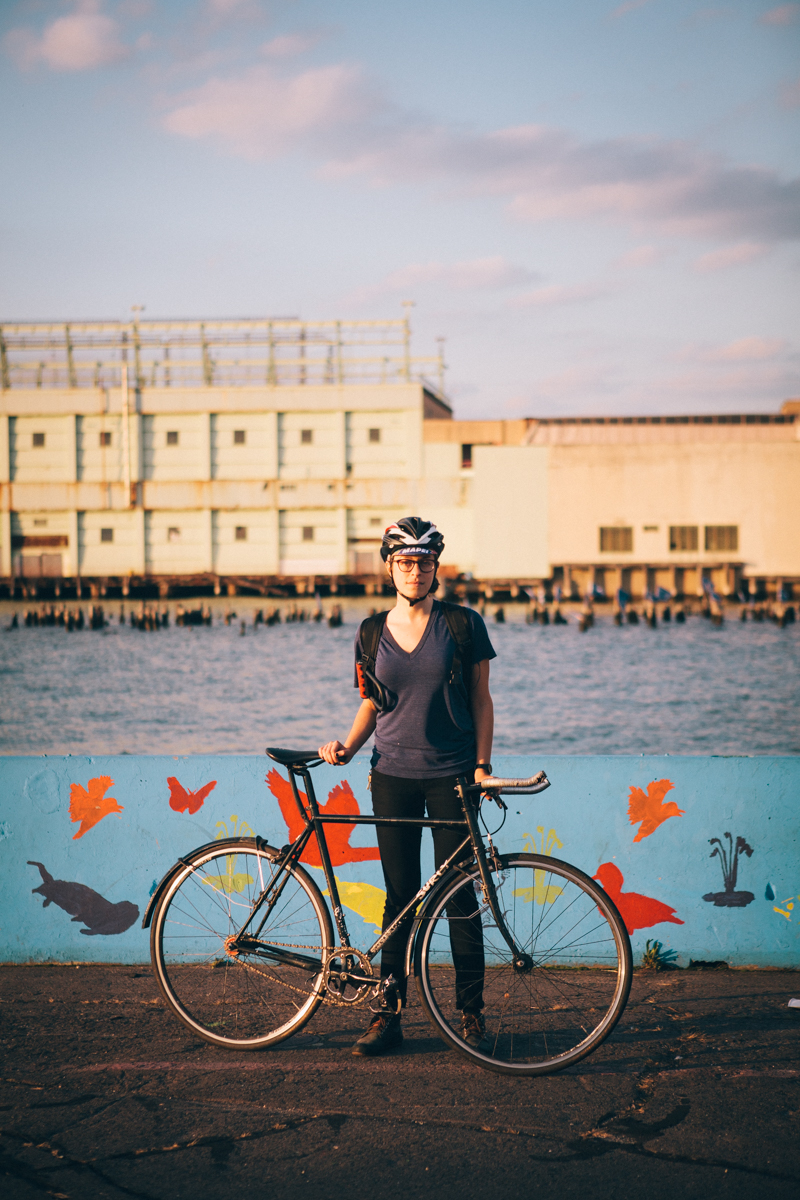
Meredith Klein, a 12th-grade math teacher at a high school for recent immigrants, brought bike education to her school with the help of Bike New York, Recycle-A-Bicycle and the NYC Department of Transportation. Here’s what she told us about why she did it and what riding bikes means to her students as well as herself.
Hi Meredith. Can you start by telling us about your school?
It’s called the International High School at Union Square. It’s part of a larger network of public schools for recent immigrants. I think there are more than 15 at this point, but there are a lot of them scattered around the city, as well as a couple outside of New York. Our particular school is at the Washington Irving High School building. We’re a Title 1 School. The kids are generally less than four years into the country; the Department of Education classifies them as English Language Learners. We have a certain percentage of kids who are over the normal age for their grade level. Then we have a percentage who are “Students with Interrupted Formal Education” (SIFE)… we’ll do intakes with them when they first come and see what kind of services they need, and try to provide that. It’s a really interesting population. They come from all over the world. I think it’s now at 49 countries. They speak 30-something languages. Super heterogeneous, super diverse. I’ve learned so much from them. It’s actually a really beautiful situation, because the kids… we’re all looking to share and ask questions. Like with food. Food is huge. And languages. You’ll see a kid from China learning French. A kid from the D.R. learning a few words of Wolof. It’s just so cool.
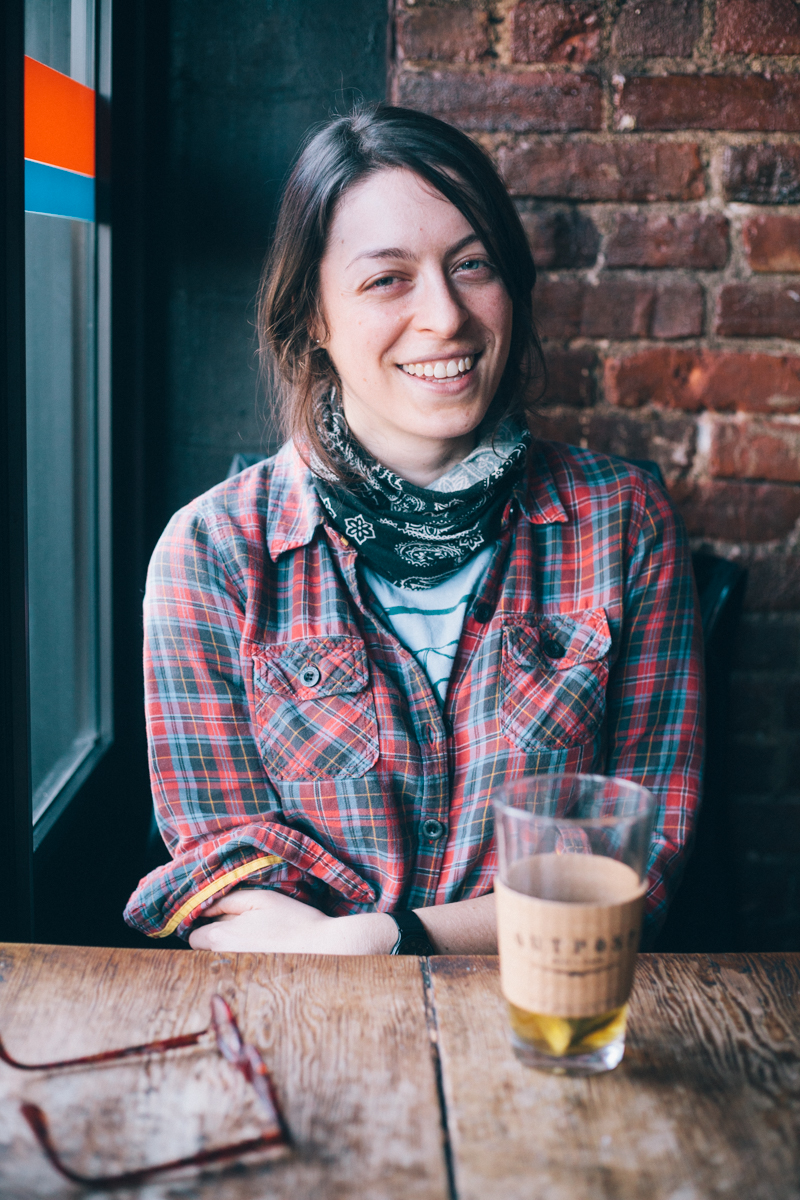
What led you to bring bike education into this amazing environment, and how did it start?
There was actually a day when this came up. Three of us teachers who ride bikes to school were taking a group of kids to a Senegalese movie at Film Forum. We were going specifically because there was going to be Wolof and French spoken in the movie, and we thought it’d be cool to take them. So we had a group of mostly West African kids with us, and we were walking our bikes. One of them, who had been my student for a couple of years, was like, “Can you teach me how to ride a bike?” Any time a kid asks me for anything or tells me they’re interested in something, I’m immediately on a computer, trying to find a way to give them that thing. It’s just who I am, I guess. I don’t know. So I started emailing. I emailed bike shops, people I knew, everyone… and eventually found my way to Bike New York. And they were like, “Yeah, we do that.”
Some of them could tell me everything about the bike they left behind. All this emotional stuff came out.
So we set it up for that spring, and all of a sudden kids were so excited about it. I couldn’t believe how many of them had either never learned how to ride and always wanted to, or hadn’t touched a bike since they left Africa or China or wherever. Some of them could tell me everything about the bike they left behind. All this emotional stuff came out. So we did this first group, and it was amazing. Kids were coming out of the woodwork. The language barrier thing is hard, so I wasn’t even sure how many kids were interested, or would be interested… but once kids were going on these rides and other kids were hearing about it, I couldn’t get away from them. So then I thought, “I need to expand.” Kids didn’t have bikes, which was a huge thing. So the next thing was getting bikes. Through Bike New York I was referred to Recycle-A-Bicycle, and we were trying to figure something out but it’s hard when you’re a teacher and there are a million things going on… and then my principal forwarded me the application for the NYC Department of Transportation’s Bike to School program, and I was like, wow. In my mind, I saw this amazing cycling program. I saw a chance for kids to learn to ride bikes, acquire bikes, maybe try to start training or cycling competitively or learning about that… to provide all aspects of cycling. We applied, and we got it, and all of a sudden things were easier, because we were working officially with Bike New York, Recycle-A-Bicycle and DOT, so it was less piecemeal. Pasqualina Azzarello from RAB came with this checklist of services that we would be able to have for the school—and it was a dream come true. That’s how things started rolling.
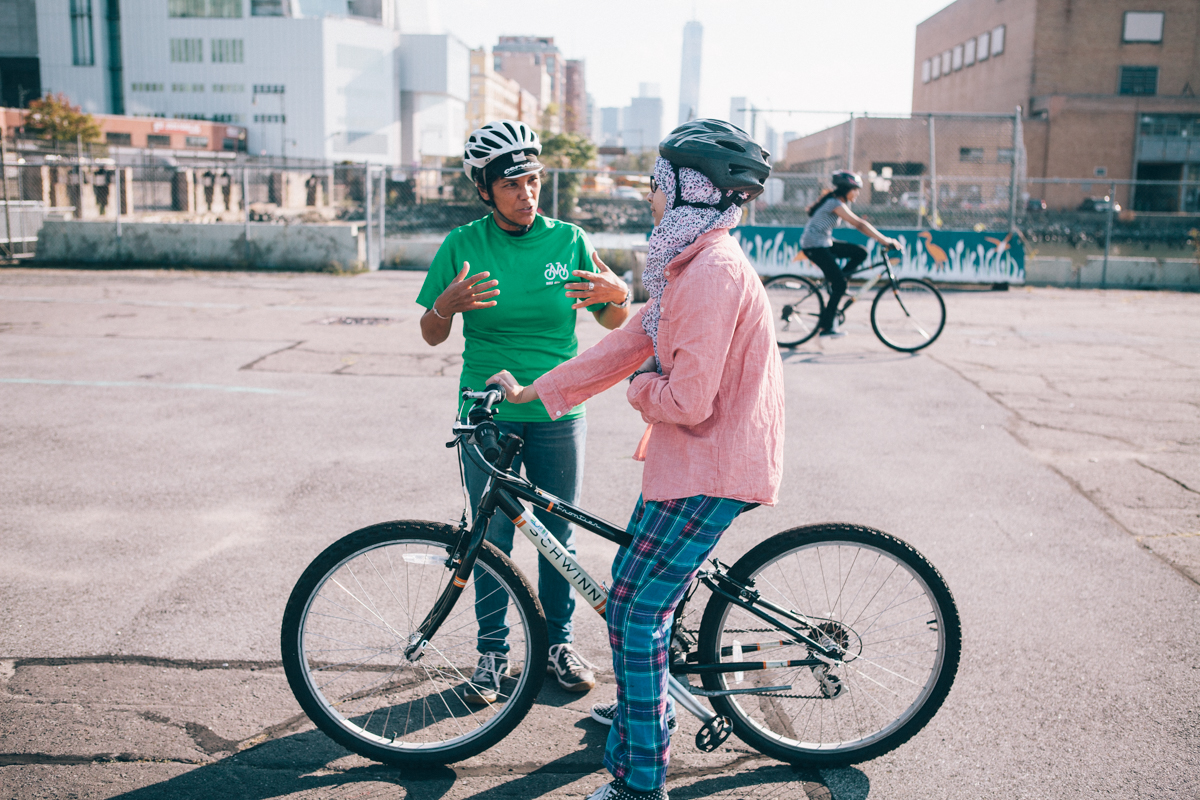
Do you think these kids benefit in other ways from this program, beyond satisfying their desire to ride?
In so many ways. First of all, they’re new to the country, and they don’t really identify with Americans yet. There’s a language barrier, and they don’t quite own this place yet. Getting on a bike in a new city gives them some autonomy. They’re marginalized in so many ways already, and to be able to own the city on a bike—that’s a really important experience for them. They start to venture out.
There’s also a huge social and emotional need that gets filled. As a kid, or a teenager, coming to this country under duress or whatever other circumstances, is a dramatic experience. They’re teenagers, as it is! And they’re leaning a new language, they’re new to this city… and then they get to just be on a bike. You know what it feels like to be on a bike. One of my fellow teachers said to me, “You forget how much being on a bike feels like flying.” It feels magical to them. It does something. They come to school and all day, from the minute they get here until the bell rings and they get to go home—or to work and then home—they’re on task. It’s exhausting, to interact in a foreign language all day, with new content on top of that. Then they get to do something that’s a little social and a little active, outdoors, with their friends.
They’re marginalized in so many ways already, and to be able to own the city on a bike—that’s a really important experience for them.
I also think it’s liberating for some them in certain ways; some come from backgrounds where women weren’t given opportunities to be out riding bikes. Now they can decide for themselves: “I’m signing up for this, this is my decision, I’m going to acquire this skill.” One girl wrote her college essay about it, and I remember the look on her face on that day where she did more than one pedal stroke and all of a sudden everyone’s like, “Pedal, pedal, pedal!!!” She said it’s the most important thing that’s ever happened to her.
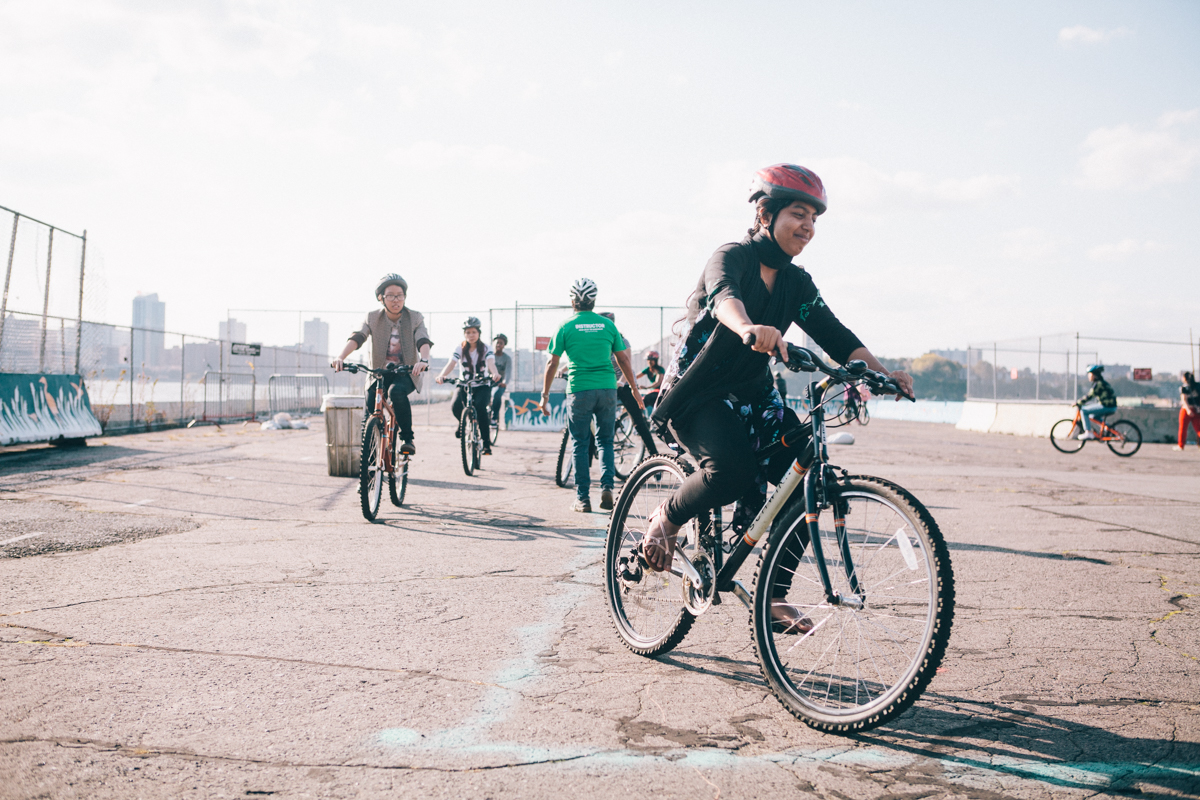
It must be an emotional experience for you to be around this kind of thing. Do you get used to it?
No. It’s always magical. It’s always amazing. I mean, sometimes I’m tired, it’s at the end of the day, but…Jenny Adelman, one of my fellow teachers, pointed out to me that it’s so restorative. Because it’s the same for us: I’m a math teacher, and it’s hard for kids to be in class all the time… and to get to do this thing with them, to see that look on their faces, is amazing.
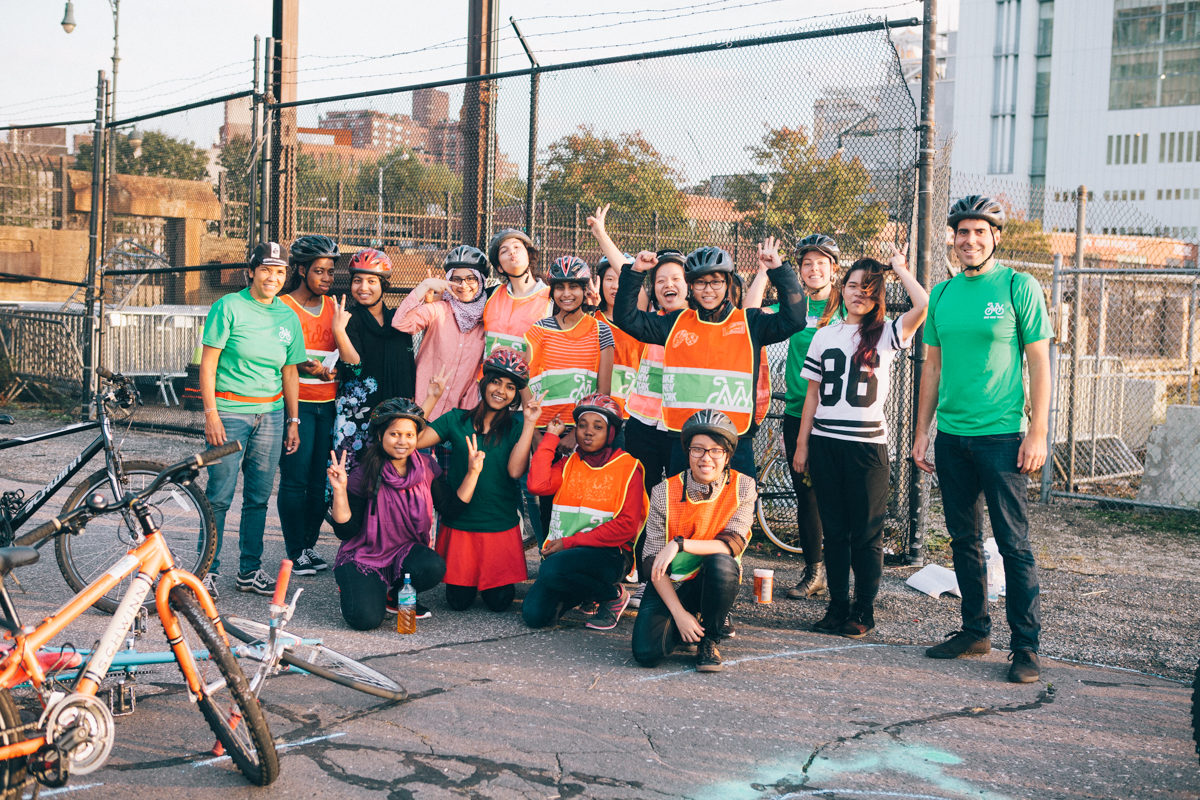
And now there’s a bike mechanics component to the program.
Yeah. RAB set us up with five workstations, each of which includes a set of tools, a bike stand, bikes, parts, grease, and oil—even the special soap for your hands—all at no cost to us. And even though Jenny and I received their training, there are things that I won’t be able to answer, so RAB allowed us to hire one of their mechanics, who takes the lead on those classes. Kids can fix those bikes and take them home. It’s an earn-a-bike program. There’s a checklist that a bike shop would have, attached to the handlebars, and we check off the things as we go. And this is a job a kid could have, or an internship. A lot of these kids need to work, to make money. Rather than working at Panera or Starbucks or something, this is something where they could make a little bit of money and it’s something that they love …. Again, it was the kind of thing where, when I told kids about it, all of a sudden I couldn’t get enough bikes. They’re obsessed with it. They like, “My bike is done!” I have to tell them that they’re learning a skill, and that we have to go through the whole bike. That way, when they take it home, they’ve opened it up and put it back together, and they can take that back to their community and when someone gets a flat tire, they can take care of that.
And then show others how to do it.
Yes, although a lot of them have worked on bikes back home. Like, “In the D.R., we used to do that with spoons.” They’ve never seen a tire lever before, they just used spoons or their hands. A kid grabbed an adjustable wrench and said, “We do everything with this.” And then they pick up a tire lever and they change a tire with it for the first time, and they’re like, “Oh man, that was way easer.”
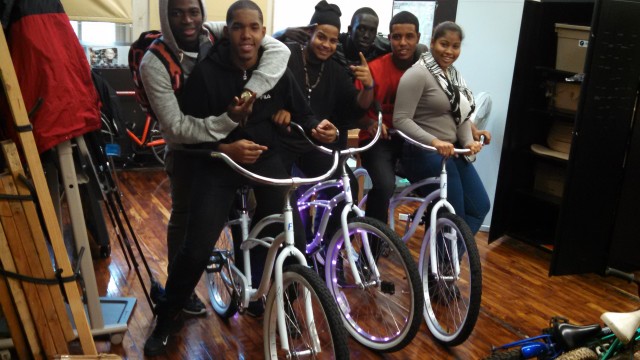
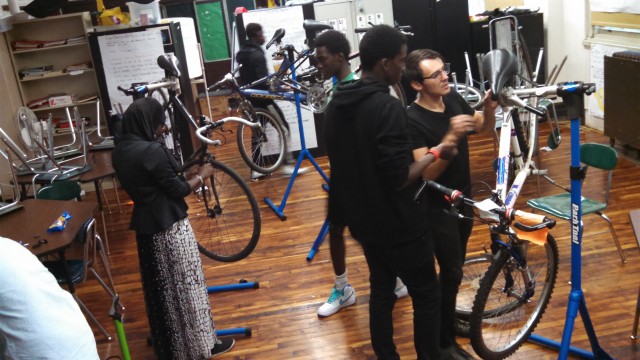
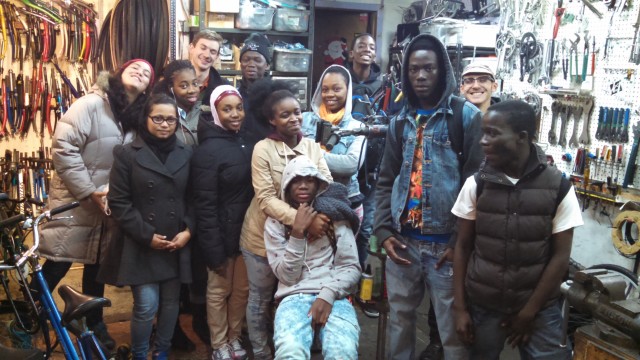
They pick up a tire lever and they change a tire with it for the first time, and they’re like, ‘Oh man, that was way easier.’
What else do you want to add to the program?
Well, first of all, to get the bike shop to be sustainable. To involve the kids in fundraising, ordering, inventorying, things like that—to make it operational. There are some kids that are interested in getting into racing, and I’d love to have them have some partnerships with teams or something. Also, to have the riding to school component of the program be more sustainable. That would involve getting bike racks or a corral built in front of school, because Union Square is a hotspot for bike theft. We could teach kids how to lock up bikes securely, so they could ride to school all the time, which would be really nice for them.
Well, it sounds like you love your job.
I do love my job. I’m really lucky in that way. I feel like I’m making something, and I feel like I’m learning all the time, and thinking all the time, and making progress myself.
A bike ride must be a nice antidote to all of that problem solving.
Which is why I commute by bike. I have to. I have to start my day and end my day moving. I need it.
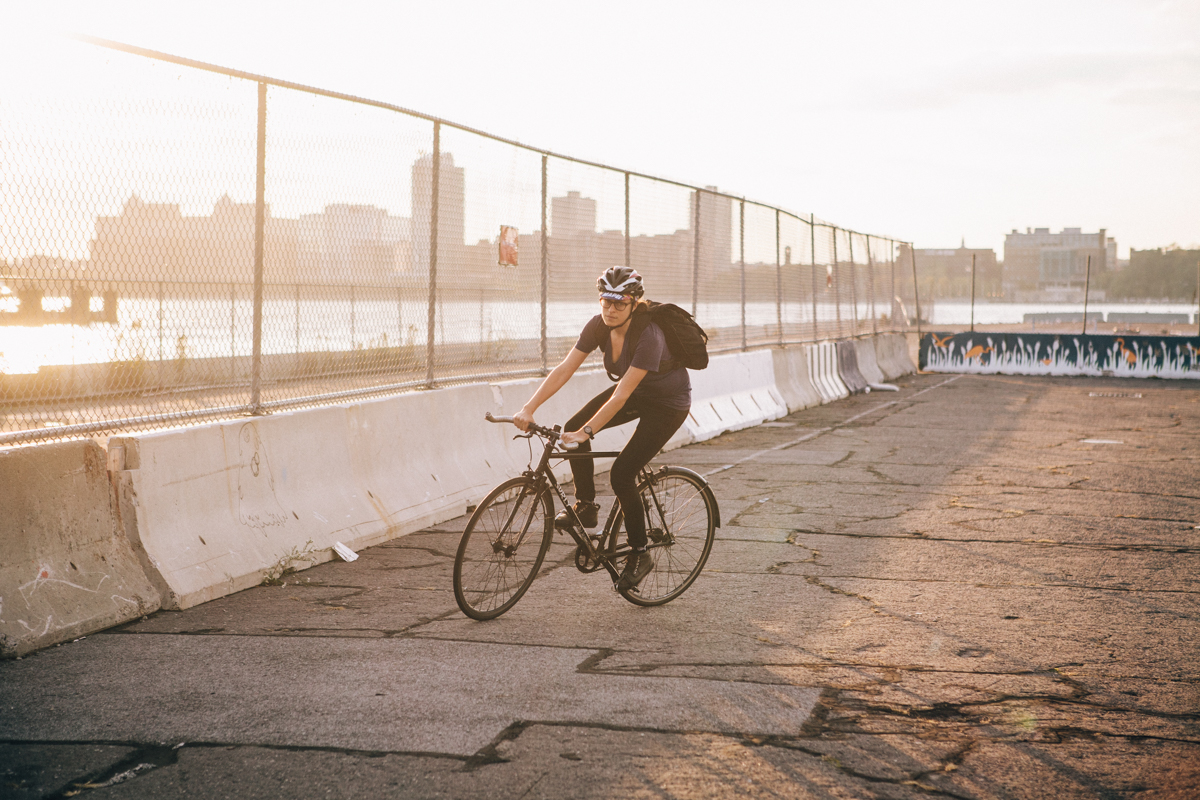
When did you first start needing it?
I would ride to school sometimes, but even in college, I had a bike and I wasn’t in love with it. If anything, I was more of a casual runner. I didn’t really get serious until I moved here. The first time I rode over the bridge and through Chinatown at night, I was like, “This looks different.” I’d seen Chinatown millions of times since I was a child, but I felt like I was in a new city. And that was the moment where I was like, “I’m obsessed with this.” From there, I got a better bike, and it became my only mode of transportation. I canceled my TransitCheck, there was no more MetroCard. I acquired gear through the years, through the seasons, got an even better bike so I could go further faster, and started doing multi-sport stuff, because I swim, too. It bled into all areas of my life to the point where it’s a lifestyle. How I dress has to work around biking. And now it’s part of my career. It’s an interesting thing that happens as you get older, and your identity, your career, who you are and what you do, all start to gel and solidify… and I’m starting to feel like that’s happening. It’s amazing.

